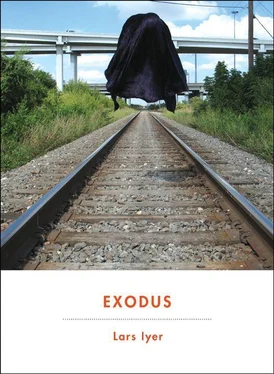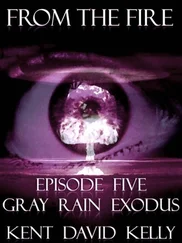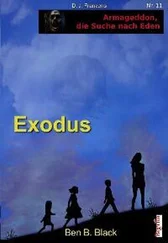‘Meet me at the sea!’ , W.’s text message reads, when I arrive at Plymouth airport. Over lunch at Platters , W. tells me the joyful news: his postgraduates are planning an occupation! They’re going to take back the college campus!
There are only a few Plymouth postgraduates, W. says. Only a handful. But there were only a handful of Situationists! ‘Give me a lever long enough, and a fulcrum on which to place it, and I shall move the world’ , W. says, quoting Archimedes. Well, the Plymouth postgraduates are the lever, he says. And his college is the fulcrum. And the world really might be moved …
It’s happening! It’s really happening! W. can’t contain his joy. Of course, we mustn’t interfere, he says. It’s their revolution, not ours. But they’ve asked us to speak, W. says. Well, they’ve asked him to speak. He’s invited me along for some pathos, he says. Revolutions thrive on pathos, he says.
W. quotes Lenin: ‘Revolution is a tough business. You can’t make it wearing white gloves and with clean hands’ . — ‘You can’t make revolution in a blousy shirt, either’, W. says. The linen look: is that what I’m going for? Of course, he’s just as bad, W. says. He should have asked Sal to advise him on revolutionary chic.
Ice-creams, by the cannon pointing out at the Hoe. The Citadel, grey and looming at our backs. Light on the waves. Nice weather for a revolution! Did the Communards on the barricades get a good tan ? Were there blue skies above the revolutionaries when they stormed the Bastille?
You’re supposed to carry an onion, to stop your eyes smarting from tear gas, W. says. And you’re supposed to wear an extra vest, to stop plastic bullets. And you’re supposed to wear wrist bands and knee protectors like skateboarders, to keep the police dogs off …
But we’re going to turn up just as we are, W. decides. In our finitude. Our vulnerability. They’ll see our blousy shirts, as they’re raising their batons to strike us. They’ll see our podgy bodies and our spectacles. They’ll see the truth! , W. says. And then they’ll swap sides, and join us on the barricades …
A taxi to the campus. The skeleton of the cathedral, hollowed out by Luftwaffe bombs in World War II … The broad boulevards of Abercrombie’s city centre … The parkland surrounding the Plymouth Argyle football grounds … This is the last time we’ll see Plymouth with our old eyes, W. says.
This time tomorrow, we’ll probably be roaring through the city in the back of a police van, W. says. They’ll show us on BBC Southwest, being bundled into cells.
And this time next week? W. wonders. They’ll have locked us up. We’ll be prisoners of conscience. Political prisoners! Bono will dedicate a song to us. Our picture, like Ché’s, will stare out from a thousand posters …
W’s college, at the edge of Dartmoor.
Students smoking in small groups. The remnants of disposable barbeques. Spread blankets, and a portable MP3 player pounding out Jandek’s Modern Dances . This is his kind of political protest, W. says.
W.’s disappointed that none of his sport science students have joined the occupation. He thought he might have been able to turn them. He thought they might have ended up on his side, armed with cricket bats and hockey sticks.
But his philosophy postgraduates are out in force, W. says. The last humanities students of the college! The brave remnant, the sign of righteousness on their foreheads, ready to confront the army of the Antichrist.
But there is no army. Only a lone security guard, sitting on a plastic chair.
Rain. We take refuge in the smokers’ shelter. Where are the police? W. wonders. Where are the university authorities? Even the security guard is putting his thermos flask away, and preparing to leave. W. waves at him, and he waves back. — ‘Come and join the revolution!’, W. shouts. But the security guard is too far away to hear.
Night. A fire in the empty carpark. Empty playing fields. The campus woods. Postgraduates, sitting on the kerb.
‘ Since the destruction of the Temple, the divine inspiration has been withdrawn from the Prophets, and given to madmen and children’ , W. says to our audience, quoting from the Talmud. ‘And it’s been given to idiots, too’, he says. And then, under his breath: ‘Go, fat boy!’
It will be like Chernobyl, our future, I tell the audience. And they will be like Chernobyl children, our descendants, each with his own deformity, each her own cancer.
That’s how they’ll know one another in future, I tell them: by their cancers. Everyone will have a different kind of cancer. One will have cancer of the spleen, the other cancer of the heart, a third cancer of the ears, and so on. And they’ll die before they’re teenagers, like Chernobyl children. They’ll die with no one to care for them, gasping for air. They’ll die alone and screaming, millions of them, billions of them, as the atmosphere boils away.
‘Go on’, W. says, sotto voce . ‘Tell them about your vision’.
I see them building great cities at the Poles, I tell our audience. The last cities, after the destruction of the other ones, into which no one is allowed but the rich. They’ll build New Mumbai in northern Siberia, when the old one drowns, I tell them. They’ll build New London in northern Scandinavia, when the old one burns, I tell them. They’ll build New Mexico City in the Western Antarctic, when the old one is razed in the coming wars, I tell them.
We’ll die in our millions, I tell them. In our billions! Africa will have to be abandoned. India. China will become a dustbowl; America, a salt plain. We’ll die slowly, in great agony, as the skies burn red. We’ll sink down by the walls built to exclude us. We’ll die by the laser swords of robot soldiers. We’ll die of starvation and we’ll die of exhaustion. We’ll die of thirst, terrible thirst. We’ll die of new diseases for which there are no names …
And New Shanghai will tower into Arctic skies, I tell our audience. New Washington will gleam like Canary Wharf in northern Alaska …
And our bodies will swell and rot in the blazing heat. Do you know what corpses smell like? I ask our audience. They smell sweet , I tell them. There’s a smell of rotting, yes, but there’s a smell of sweetness, too.
‘Pathos, more pathos!’, W. whispers.
I see the money-makers still profiteering on the cindered husk of the earth, I tell our audience. I see New Beetham Tower in the New Manchester of the Arctic. I see New Old Hulme floating on the ice-free ocean …
I see celebrities on red carpets under hot, black skies, I tell our audience. I see helicopters circling in the burning sky. I see military putsches and crazed dictators. I see Fascism 2.0 . I see Fundamentalism Reloaded . I see wars without end.
I see investors leaving earth in a swarm of rockets, I tell our audience. I see the mega-rich in orbit around a burning earth. I see them looking outward, out towards the stars, for new investment opportunities …
‘Are they weeping yet?’, W. asks. They’re not weeping, I tell him. Okay, it’s his turn, W. says.
‘In the dark times, will there still be singing?’ , W. asks our audience, quoting Brecht. ‘In the dark times, there will be singing about the dark times’ . As with song, so with speech, W. says. ‘The last covenant will be the covenant of speech’, W. tells our audience, obscurely. ‘Speech is our promise’, he says, but no one really understands.
W. repeats to the audience something I’ve told him about my monk years. Every night, before dinner, the monks would bless the garden with incense. Incense would waft through the leaves. It would waft into the night and towards the animals of the night. Towards the city foxes and the barn owls. Towards the slugs and the snails and the rats. Incense would waft to the people of the night: to the prostitutes on the corner, and to the burglars who used the gardens as a run-through. To the junkies looking for their fix, and to the muggers waiting in their alleys.
Читать дальше












